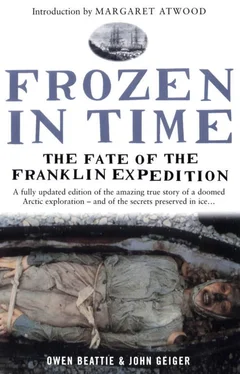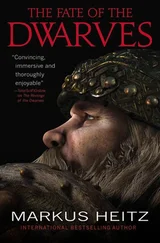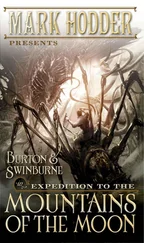Parry had blind luck on his side. His ships pushed rapidly west, cruising through a channel normally closed fast by ice, even in summer. When ice did finally obstruct his progress, he opted to overwinter at Melville Island, a rugged outcrop of 1,200-foot (370-metre) cliffs that he named for Viscount Melville, the First Lord of the Admiralty. Parry fully expected the ice to clear from the remainder of the passage the following summer. In fact, he had unknowingly breached the dominion of ice, a possibility that dawned on him during the depths of the polar winter, when the temperature outside plunged to minus 55°F (-48°C). He realized that he had taken an incalculable risk and secretly began to craft an escape, titled “Plan of a Journey from the North coast of America towards Fort Chipewyan, should such a measure be found necessary as a last resource.” He doubtless realized it would have been an exercise in futility. The nearest white men, Hudson’s Bay Company fur traders, were more than 700 miles (1,130 km) away across some of the bleakest, coldest terrain on earth.
Parry, however, did just about everything right in the circumstances. It was 1 October, and he “immediately and imperiously” set about securing the ships and stores for the onset of the polar winter, a responsibility that had, he wrote accurately if immodestly, “for the first time devolved on any officer in his majesty’s navy, and might, indeed, be considered of rare occurrence in the whole history of navigation.” Most particularly, Parry determinedly set about defending against scurvy. He sent out hunting parties and enforced a ruling that “every animal killed was to be considered as public property; and, as such, to be regularly issued like any other kind of provision, without the slightest distinction between the messes of the officers and those of the ships’ companies.” In addition, Parry diligently seized upon two dietary reforms that had only recently been introduced by the Royal Navy: The lime juice—prepared from fresh fruit—he carried onboard was dispensed daily in the presence of an officer to ensure that the bitter concoction was consumed by reluctant sea-hands; also distributed were the stores of “embalmed provisions”—tinned meats, vegetables and soup. So new was the technology that no one had yet invented the can opener; the cans had to be cleaved open with an axe. (The Royal Navy had begun conducting trials with tinned foods in 1813.)
Parry had yet another plan: to keep his men so thoroughly occupied that they had no time to consider their predicament. Their days were filled with activities, but Parry’s most useful tool for staving off monotony was a barrel organ for singalongs and bimonthly polar melodramas put on by officers in petticoats. His second officer even produced a newspaper called the North Georgia Gazette and Winter Chronicle, filled with bad puns and abominable poesy, but which had the “happy effect of… diverting the mind from the gloomy prospect which would sometimes obtrude itself on the stoutest heart.”
Despite Parry’s best efforts, however, the living conditions the men were forced to endure were appalling. On 3 November, the sun disappeared below the horizon and did not return until 84 days later, just before noon on 3 February 1820, when a crewman spotted it from the Hecla’ s maintop. By then, the temperature inside the ships was so cold that the theatrical performances could not be enjoyed by anyone, but most particularly by the cast of female impersonators. Large patches of skin were left behind any time the men touched a metal surface. Wrote Parry: “We found it necessary, therefore, to use great caution handling our sextants and other instruments, particularly the eye-pieces of telescopes.” The lime juice froze and shattered its glass containers. Even the mercury froze in the thermometers.
Rations, at least, were better than the more experienced hands were used to, as “a pound of Donkin’s preserved [tinned] meat, together with one pint of vegetable or concentrated soup, per man” replaced salt beef weekly. Yet despite this measure and the daily allotment of lime juice, the first case of scurvy was reported on 1 January 1820. Parry tried to conceal it from the crew, and set about curing the victim by starting a tiny garden of mustard and cress on the warm galley pipes of the Hecla. The measure worked. Nine days later, the man boasted that he was fit enough to “run a race.”
Soon, however, illness gained a firmer hold: a quarter of the ninety-four-strong crew fell ill, half of them from scurvy—though even as the symptoms appeared, the worst of the crew’s hardships were behind them. By May, ptarmigan were seen, and soon a brace or two were bagged daily for the sick. It was, wrote Parry, “of the utmost importance, under our present circumstances, that every ounce of game which we might thus procure should be served in lieu of other meat.” During the expedition’s twelve months on Melville Island, the men would consume 3 musk oxen, 24 caribou, 68 hares, 53 geese, 59 ducks, 144 ptarmigans—totalling 3,766 pounds (1,710 kg) of fresh meat. To cap it off, when the snow melted, Parry noticed that sorrel grew in abundance around the harbour, and the men were sent out every afternoon to collect it: “Of the good effects produced upon our health by the unlimited use of fresh vegetable substances, thus bountifully supplied by the hand of Nature, even where least to be expected, little doubt can be entertained, as it is well known to be a never-failing specific for scorbutic affections.” In the end, Parry lost just one man to scurvy during his seventeen-month voyage. Relative to what might have been expected in such circumstances, the achievement was, wrote Parry, “a subject of wonder.”
Parry’s expedition had become the first to overwinter in the Arctic archipelago. He also came closer to completing the Northwest Passage than any other person would come for the next three decades. He was tempted to push on to the Pacific. But, facing an impermeable barrier of multiyear ice, with depleted stores and the very real risk of being forced to spend a second winter in the region, he relented.
The expedition had encountered no Inuit during its long winter at Melville Island, but on its homeward journey, the crew finally met some natives on Baffin Island; one of those meetings would be laden with irony. One of the Inuit elders was, Parry noted, “extremely inquisitive” and observed gravely as a tin of preserved meat was opened for dinner: “The old man was sitting on the rock, attentively watching the operation, which was performed with an axe struck by a mallet.” When the tin had been opened, the man “begged very hard for the mallet which had performed so useful an office, without expressing the least wish to partake of the meat, even when he saw us eating it with good appetites.” Parry, however, insisted the man try some: “[He] did not seem at all to relish it, but ate a small quantity, from an evident desire not to offend us.”
Unfortunately, the elder’s distaste for tinned foods was not shared by British authorities. After Parry’s return, expedition surgeon John Edwards praised such supplies as “acquisitions of the highest value.” C.I. Beverley, the assistant surgeon on Parry’s expedition, also produced a glowing endorsement of the expedition’s tinned provisions, ascribing to them both the preservation of the general health of the officers and crew and the eventual recovery of one man who had been “attacked by the scurvy.” This assessment ended with a statement that encouraged ever-greater reliance on tinned goods: “I have every reason to believe that the anti-scorbutic quality of the vegetable is not injured in its preparation.” Yet this notion—that tinned foods retained powerful antiscorbutic properties—was entirely anecdotal. The comparative immunity enjoyed by Parry’s men might, with hindsight, have been more accurately attributed to other factors, not the least of which was the amount of game shot and wild sorrel collected. Unfortunately, no mention of these measures was made. The British were enamoured of technology, and, after Parry’s successful overwintering in the Arctic, the antiscorbutic benefits of tinned foods became accepted wisdom in the Royal Navy, a premise that would go untested and unchallenged for much of the next century. Indeed, starting with William Edward Parry’s voyage of 1819–20, British Arctic expeditions used tinned foods first as a supplement, then, by the time of George Back’s 1836–37 voyage, as a critical component of their food stores.
Читать дальше










